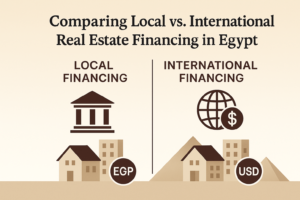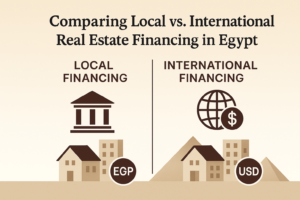Why Real Estate is a Smart Investment
Real estate is one of the most time-tested and profitable investment options available today. Whether you’re looking for passive income, long-term appreciation, or portfolio diversification, real estate provides a secure way to build wealth and achieve financial freedom.
For beginners, investing in real estate may seem overwhelming—from understanding market trends to securing financing and managing properties. However, with the right knowledge and a well-planned strategy, anyone can succeed in the lucrative world of real estate investing.
This guide covers everything you need to know about getting started, including types of real estate investments, financing options, and key strategies to maximize returns while minimizing risks.
What is Real Estate Investing?
Real estate investing involves buying, owning, and managing properties with the goal of generating rental income, capital appreciation, or both. Investors can choose from residential, commercial, industrial, or even raw land investments, depending on their financial goals and risk tolerance.
Some key benefits of investing in real estate include:
Steady cash flow through rental income
Property value appreciation over time
Tax benefits like depreciation deductions
Portfolio diversification to reduce financial risk
Leverage opportunities using mortgages to amplify returns
Types of Real Estate Investments for Beginners
1. Residential Real Estate
Investing in single-family homes, apartments, or condos to rent out or resell is a popular choice among beginners. Tenant demand remains high, making it a stable investment.
Best locations for residential investing:
- Growing cities with high rental demand
- Neighborhoods with good schools and low crime rates
- Areas near business districts or universities
2. Commercial Real Estate
Buying office buildings, retail stores, or warehouses can generate higher rental income but requires a larger upfront investment. This option is ideal for investors looking for long-term contracts and business clients.
Why consider commercial real estate?
- Higher rental yields compared to residential properties
- Long-term lease agreements with businesses
- Lower tenant turnover and consistent income
3. Real Estate Investment Trusts (REITs)
If you want to invest in real estate without owning physical property, REITs are a great option. These publicly traded companies own and manage properties and pay dividends to investors.
Benefits of REITs:
- Low-cost entry with small investments
- Highly liquid – buy or sell shares like stocks
- Diversification across multiple properties
4. Short-Term Rentals (Airbnb & Vacation Homes)
With the rise of Airbnb and vacation rentals, investors can earn high returns by renting out properties short-term in tourist hotspots.
Best locations for short-term rentals:
- Beachfront properties
- Downtown apartments
- Mountain cabins and ski resorts
How to Start Investing in Real Estate?
Step 1: Define Your Investment Goals
Before you buy your first property, ask yourself:
✔ Do I want passive income or long-term appreciation?
✔ Am I looking for residential or commercial real estate?
✔ What risk level am I comfortable with?
Step 2: Build Your Financial Foundation
Set a budget – Determine how much you can afford to invest.
Improve your credit score – A higher credit score gets you better mortgage rates.
Research financing options – Choose between traditional mortgages, private lenders, or real estate crowdfunding.
Step 3: Choose the Right Property
Location is key – Invest in areas with high rental demand and growth potential.
Inspect the property – Avoid homes with structural issues or expensive repairs.
Analyze market trends – Ensure the property value appreciates over time.
Step 4: Understand the Numbers
Cash Flow Analysis:
- Gross Rental Income – Total rent collected
- Operating Expenses – Maintenance, property tax, management fees
- Net Cash Flow = Rental Income – Expenses
Pro Tip: Invest in properties with positive cash flow to ensure profitability.
Step 5: Manage Your Investment
DIY Management vs. Property Managers – Choose hands-on management or hire a property management company.
Screen Tenants Carefully – Reliable tenants reduce vacancies and maintenance costs.
Regular Maintenance – Keeping your property in good condition increases its long-term value.
Risks of Real Estate Investing and How to Avoid Them
1- Market Fluctuations – Avoid buying in declining markets.
2-Unexpected Maintenance Costs – Always keep an emergency fund.
3-Bad Tenants – Conduct background checks and credit reports.
4- Vacancy Periods – Invest in areas with high demand to avoid long vacancies.
5- High Mortgage Payments – Choose properties with affordable mortgage terms.
FAQs: Real Estate Investing for Beginners
1. Is real estate a good investment for beginners?
Yes! Real estate provides passive income, long-term appreciation, and tax benefits, making it a solid investment choice.
2. How much money do I need to start investing in real estate?
You can start with as little as $10,000 for a down payment or invest in REITs with even smaller amounts.
3. What are the best cities to invest in real estate in 2024?
Top locations include New York, Dubai, Cairo, and emerging real estate hubs like the New Administrative Capital in Egypt.
4. Should I manage my rental property or hire a property manager?
If you want full control and cost savings, manage it yourself. If you prefer a hands-off approach, hire a property management company.
5. How do I know if a rental property is profitable?
Calculate cash flow, ROI (return on investment), and property appreciation rates before purchasing.
Invest Smart with Consult – Your Trusted Real Estate Partner
Looking to make your first real estate investment? Consult is here to help you find profitable properties, analyze market trends, and maximize your ROI.
✔ Expert real estate investment strategies
✔ Market research & financial analysis
✔ Personalized portfolio management
Contact Consult today for a free consultation and start building your real estate wealth

















